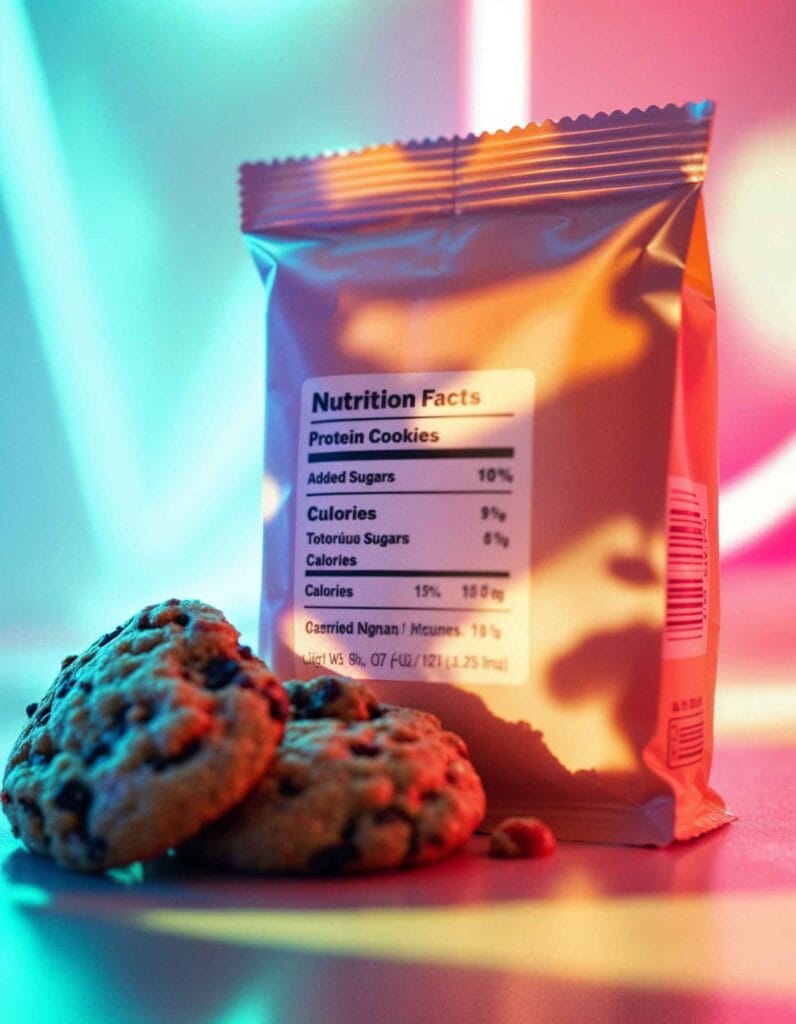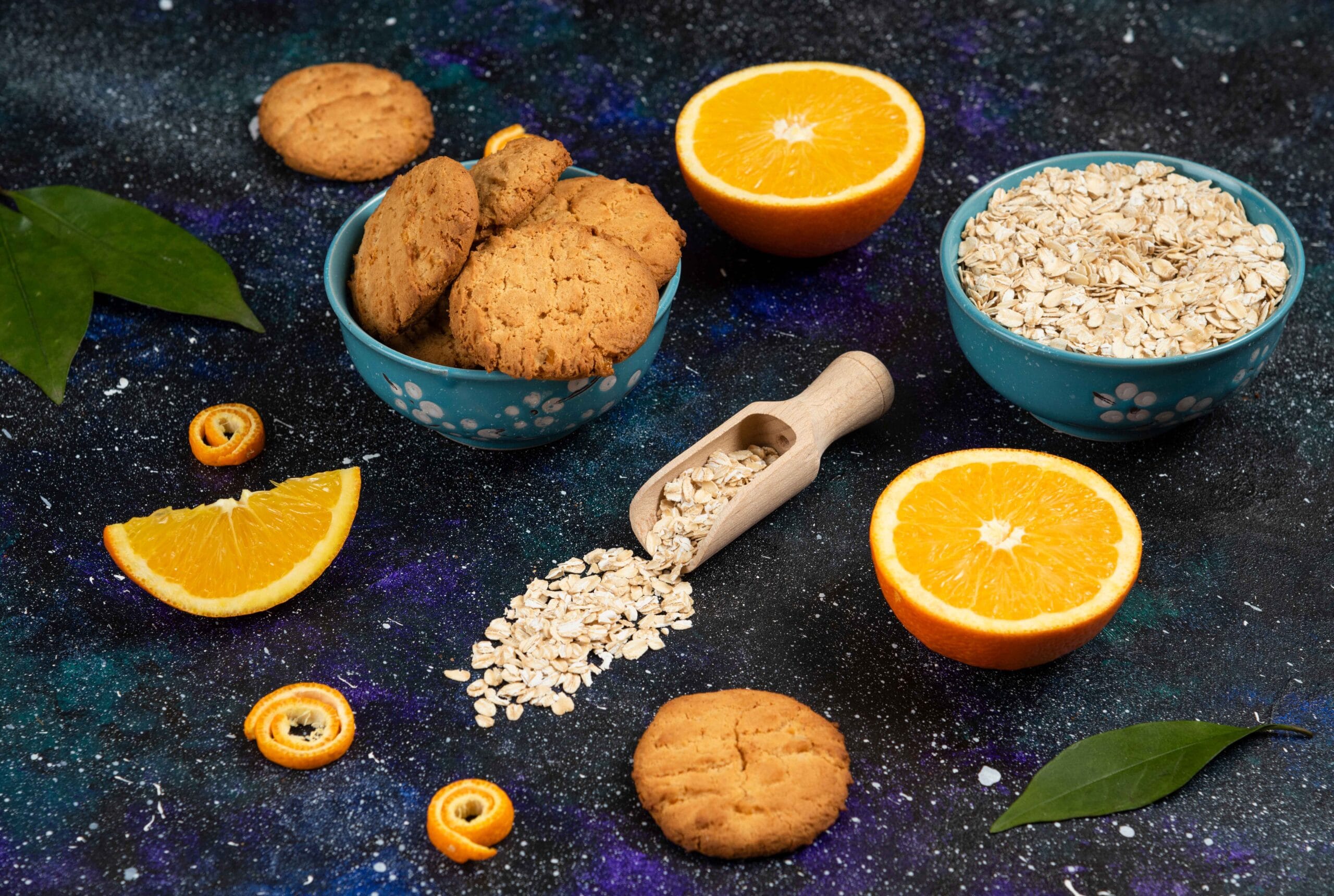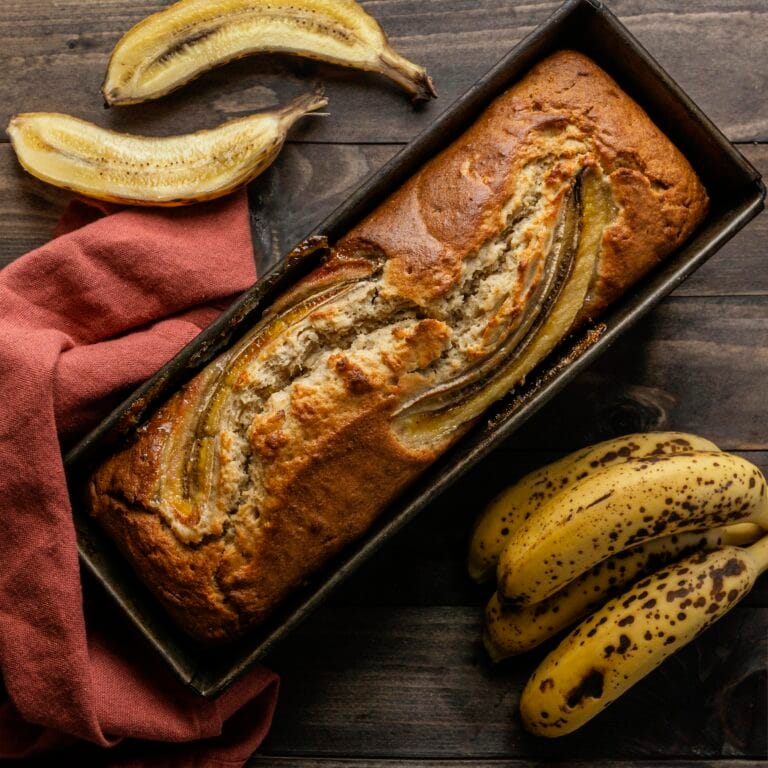Do Protein Cookies Fill You Up?
Protein cookies have emerged as a favorite snack for fitness enthusiasts, busy professionals, and anyone seeking healthier alternatives to sugary treats. With their promise of high protein content, these cookies are marketed as both nutritious and satisfying. But do protein cookies truly live up to the hype of keeping hunger at bay? In this article, we’ll explore the ingredients, nutritional benefits, and limitations of protein cookies to determine whether they can effectively fill you up and support your health goals.
Understanding Protein Cookies

What Are Protein Cookies?
Protein cookies are a modern take on the classic cookie, designed to provide a higher protein content while maintaining a sweet, indulgent flavor. Unlike traditional cookies, which are often high in sugar and fats but low in protein, these snacks are fortified with protein sources such as whey protein isolate, plant-based proteins, or egg whites.
These cookies are crafted to cater to a wide range of dietary needs, including those of athletes, dieters, and health-conscious individuals. Some brands emphasize clean, whole ingredients, while others rely on artificial sweeteners and additives to balance taste and nutritional goals. The result is a diverse array of options, from chewy and soft-baked textures to crunchy, satisfying bites.
How Are Protein Cookies Made?
Protein cookies are typically made by combining protein powders (such as whey, casein, or pea protein) with traditional cookie ingredients like flour, eggs, and fats. To keep them healthier, many recipes substitute refined flour with almond or oat flour and replace sugar with stevia, monk fruit, or other natural sweeteners.
Here’s a general breakdown of their preparation:
- Protein Base: A powdered protein source is mixed into the dough, providing the signature macronutrient boost.
- Binding Agents: Ingredients like eggs, nut butter, or yogurt are used to bind the cookie together, contributing to its texture and moisture.
- Sweeteners and Flavorings: Depending on the brand, these can range from natural options like honey and vanilla extract to artificial flavorings and zero-calorie sweeteners.
- Add-Ins: Popular add-ins include dark chocolate chips, nuts, seeds, and dried fruits, which not only enhance flavor but also contribute additional nutrients.
Once the dough is prepared, it is baked at moderate temperatures to ensure the proteins remain stable and the cookies retain their texture.
Learn how to substitute protein powder for flour in cookies.
Nutritional Profile of Protein Cookies
Protein cookies are known for their nutrient density compared to traditional cookies. Here’s a look at their typical nutritional makeup:
- Protein Content: Most protein cookies contain 10-20 grams of protein per serving, which is comparable to a protein bar or shake. This makes them a substantial snack for curbing hunger.
- Calories: Depending on the ingredients, a single cookie can range from 200 to 400 calories, offering enough energy to replace a small meal or serve as a filling snack.
- Carbohydrates and Fiber: While some protein cookies are low in carbs for keto-friendly options, others balance their macronutrient profile with fiber-rich ingredients like oats, chia seeds, or flaxseeds to enhance satiety.
- Fats: Healthy fats from sources like nuts, coconut oil, or avocado provide additional staying power and contribute to the cookie’s flavor.
- Added Ingredients: Vitamins, minerals, and probiotics are sometimes included to boost the overall health benefits of the product.
The actual nutritional value varies widely between brands, making it essential to check labels carefully. While some cookies are genuinely nutritious, others may be high in sugars and artificial additives, undermining their health appeal.
Satiety and Protein
The Role of Protein in Satiety
Protein is well-documented as one of the most satiating macronutrients, playing a critical role in controlling hunger and supporting weight management. The body digests protein more slowly than carbohydrates, which helps sustain energy levels and delay the onset of hunger.
Several mechanisms explain protein’s impact on satiety:
- Hormonal Regulation: Protein influences hunger hormones such as ghrelin, known as the “hunger hormone,” and peptide YY, which promotes feelings of fullness. A protein-rich snack like a protein cookie can stimulate the release of peptide YY, reducing appetite.
- Thermic Effect of Food (TEF): Protein has a higher thermic effect than fats or carbohydrates, meaning the body uses more energy to digest it. This contributes to a prolonged feeling of fullness.
- Reduction in Cravings: Protein consumption can help curb cravings for sugary or fatty snacks by stabilizing blood sugar levels.
Protein cookies, when made with quality protein sources, can deliver these benefits, helping to keep hunger in check between meals or after a workout.
How Protein Cookies Contribute to Feeling Full
Protein cookies combine the satiating effects of protein with other hunger-curbing ingredients like fiber and healthy fats. Here’s how these components work together:
- Protein Content: As the primary ingredient, protein slows digestion and promotes fullness, especially when sourced from whey, casein, or pea protein.
- Fiber: Many protein cookies include oats, flaxseeds, or chia seeds, which add dietary fiber. Fiber swells in the stomach, increasing the feeling of satiety and aiding in digestive health.
- Healthy Fats: Ingredients like nut butters, coconut oil, or avocado oil not only add creaminess and flavor but also prolong fullness by slowing the digestion of carbohydrates.
- Balanced Macronutrients: Unlike traditional cookies, which are often high in sugar and low in protein, protein cookies offer a more balanced macronutrient profile, reducing energy spikes and crashes.
However, it’s important to note that the quality of ingredients plays a significant role. A cookie high in artificial sweeteners and low-quality proteins may not provide the same level of satiety as one made with whole, nutrient-dense ingredients.

Comparing Protein Cookies to Other Protein Snacks
Protein cookies are just one of many protein-packed snacks on the market. Here’s how they stack up against other popular options:
- Protein Bars:
- Pros: Protein bars often have a similar protein content and are equally portable.
- Cons: Bars can be dense, chewy, and less indulgent than cookies.
- Protein Shakes:
- Pros: Shakes are easily digestible and can be customized with additional ingredients like fruits or greens.
- Cons: They may not be as satisfying to chew and can leave you feeling less full than solid snacks.
- Natural Protein Sources (e.g., boiled eggs, Greek yogurt):
- Pros: Whole foods offer unprocessed nutrition and often include beneficial micronutrients.
- Cons: These require preparation and lack the dessert-like appeal of protein cookies.
- Nuts and Seeds:
- Pros: A good source of protein and healthy fats that can curb hunger.
- Cons: These can be calorie-dense and lack the sweetness or variety offered by protein cookies.
Protein cookies strike a balance between convenience, taste, and nutritional benefits, making them a versatile option for those seeking a satisfying snack.
Factors That Influence Satiety
Serving Size and Ingredients
The satiety provided by protein cookies largely depends on their serving size and ingredient composition.
- Serving Size:
- Many protein cookies are sold as single-serving portions but may actually contain two servings in one package. Eating a full package could double calorie intake, affecting how “filling” it feels.
- A balanced serving typically provides 200–300 calories, enough to satisfy hunger without leading to overconsumption.
- Protein Type and Amount:
- Different protein sources have varying impacts on fullness. For instance, whey protein is rapidly absorbed but highly satiating, while casein protein digests more slowly, extending the feeling of fullness.
- Cookies with at least 10–20 grams of protein per serving are ideal for hunger control.
- Quality of Ingredients:
- Whole food-based ingredients, such as oats, almond flour, and natural sweeteners, provide a nutrient-dense base, enhancing the cookie’s overall satiety.
- Artificial fillers or high-sugar content can counteract the benefits of protein, leading to quicker hunger rebound.
Added Sugars and Sweeteners
While protein cookies are marketed as healthier alternatives, their sugar content can significantly affect how satisfying they are:
- Natural vs. Artificial Sweeteners:
- Natural Sweeteners: Ingredients like honey, maple syrup, or coconut sugar contribute to satiety by providing slow-digesting carbohydrates.
- Artificial Sweeteners: Although low in calories, these can sometimes lead to cravings or digestive discomfort, reducing overall satisfaction.
- Impact on Blood Sugar:
- Cookies with high sugar content can cause spikes and crashes in blood sugar levels, leading to hunger shortly after eating.
- Choosing a cookie with a balance of protein, fiber, and healthy fats minimizes these fluctuations, keeping you fuller for longer.
The Role of Fiber and Healthy Fats
Fiber and healthy fats are critical components in making protein cookies filling.
- Fiber:
- Soluble fibers, like those found in chia seeds, oats, or psyllium husk, absorb water and expand in the stomach, creating a feeling of fullness.
- Insoluble fibers help regulate digestion, keeping hunger at bay for longer periods.
- Healthy Fats:
- Sources like nut butters, coconut oil, and seeds are calorie-dense but satiating. These fats slow digestion and provide a steady release of energy.
- Research shows that snacks combining protein with healthy fats are more effective in reducing hunger than those relying solely on protein.
Practical Example: A cookie made with almond butter, oat flour, and chia seeds is likely to keep you full longer than one made with refined flour and artificial sweeteners, even if both have the same calorie count.
Benefits of Eating Protein Cookies
Convenient Nutrition
Protein cookies are a convenient way to incorporate essential nutrients into a busy lifestyle. Their portability and long shelf life make them an excellent snack for those who don’t always have time to prepare meals or snacks from scratch.
- On-the-Go Solution:
- Protein cookies are perfect for carrying in your bag, making them ideal for work, school, or travel.
- They don’t require refrigeration or utensils, making them a mess-free, practical option.
- Balanced Macronutrients:
- Unlike traditional sugary cookies, protein cookies often provide a better balance of protein, carbohydrates, and fats. This composition makes them more satisfying and nutritionally dense.
- Many include added fiber or vitamins, which can help fill nutritional gaps in your diet.
- Snack Replacement:
- Instead of reaching for chips or candy, protein cookies offer a healthier, more filling alternative that can curb cravings and provide sustained energy.
Support for Muscle Building and Recovery
Protein cookies are particularly beneficial for individuals with active lifestyles or fitness goals, as they aid in muscle repair and recovery.
- Post-Workout Nutrition:
- Consuming protein after exercise is crucial for repairing and rebuilding muscle tissues. Protein cookies provide a convenient post-workout snack, especially if you’re unable to have a full meal immediately.
- Whey protein-based cookies are particularly effective due to their rapid absorption rate.
- Muscle Maintenance:
- Protein isn’t just for building muscle; it’s essential for maintaining muscle mass, especially during weight loss or periods of calorie restriction. Protein cookies can help you meet your daily protein needs without relying solely on large meals.
- Enhanced Recovery:
- Some protein cookies include added amino acids like leucine, which play a vital role in muscle recovery and reducing soreness.

Weight Management Potential
Protein cookies can play a role in weight management by reducing hunger, preventing overeating, and satisfying cravings.
- Reduced Cravings:
- Many people turn to unhealthy snacks to satisfy their sweet tooth. Protein cookies offer a healthier alternative that still feels indulgent.
- The protein and fiber content in these cookies can help reduce cravings for less nutritious options.
- Calorie Control:
- A single protein cookie can serve as a portion-controlled snack, helping you avoid overindulging in other high-calorie treats.
- For those watching their calorie intake, choosing a cookie with approximately 200-250 calories can provide enough energy without exceeding daily limits.
- Sustained Energy:
- By slowing the digestion process, protein cookies help maintain stable blood sugar levels. This can reduce the likelihood of energy dips that often lead to overeating.
Real-Life Example: Imagine reaching for a protein cookie mid-afternoon instead of a candy bar. Not only would the cookie provide more sustained energy, but it could also help you avoid feeling excessively hungry by dinner.
Additional Benefits
- Dietary Flexibility:
- Protein cookies cater to various dietary needs, including vegan, gluten-free, or low-carb lifestyles, making them accessible to a wide audience.
- Improved Digestive Health:
- Cookies with added prebiotics or probiotics can support gut health, improving digestion and nutrient absorption.
- Mental Satisfaction:
- The indulgent nature of cookies offers a psychological boost. Eating something that feels like a treat can make it easier to stick to dietary goals.
Potential Drawbacks
Discover the healthiest types of cookies.
Over-Reliance on Packaged Foods
While protein cookies offer convenience, relying too heavily on packaged foods can lead to an imbalanced diet.
- Lack of Fresh Ingredients:
- Protein cookies often lack the vitamins, minerals, and phytonutrients found in fresh fruits, vegetables, and whole foods.
- Consuming too many packaged snacks might cause you to miss out on the variety needed for optimal health.
- Overconsumption of Processed Ingredients:
- Even high-quality protein cookies may include processed ingredients like protein isolates, artificial sweeteners, or preservatives, which should be consumed in moderation.
Solution: Incorporate protein cookies as part of a balanced diet, combining them with fresh, whole foods to ensure you meet your nutritional needs.
Hidden Calories and Additives
Despite their health-focused branding, not all protein cookies are created equal. Some options may include hidden ingredients that detract from their overall nutritional value.
- High Calorie Count:
- While protein cookies are filling, some can pack 300–400 calories per serving. For individuals aiming to reduce calorie intake, this may be excessive for a single snack.
- Larger cookies often contain two servings per package, leading to unintentional overeating.
- Added Sugars:
- Certain brands use high amounts of added sugars to improve flavor. Excess sugar not only increases calorie content but can also cause blood sugar spikes and crashes, reducing satiety.
- Artificial Ingredients:
- Many protein cookies include artificial flavorings, preservatives, or low-quality fats like palm oil, which might diminish their health benefits.
Tips for Selection:
- Look for cookies with minimal added sugars and recognizable, whole-food ingredients.
- Check the nutrition label to ensure that the protein, fiber, and healthy fat content outweigh the negatives.
Cost and Sustainability
Protein cookies often come with a higher price tag than traditional snacks or natural protein sources.
- Cost:
- High-quality protein cookies can cost $2–$4 per serving, which adds up for regular consumers.
- Cheaper options may compromise on ingredient quality, making it essential to strike a balance between affordability and nutrition.
- Environmental Impact:
- Packaging: Individually wrapped cookies generate more waste compared to homemade snacks or bulk options.
- Production: The sourcing of certain ingredients, such as whey protein or palm oil, can contribute to environmental challenges like deforestation or high carbon footprints.
Try this protein cookie recipe for a homemade option.
Solutions for Sustainable Choices:
- Opt for brands using eco-friendly packaging and sustainably sourced ingredients.
- Consider making protein cookies at home to control ingredients and reduce waste.

Individual Tolerances and Sensitivities
Protein cookies may not suit everyone, especially those with specific dietary concerns or sensitivities.
- Digestive Issues:
- Some individuals experience bloating or stomach discomfort from protein isolates or sugar alcohols like erythritol, which are commonly found in protein cookies.
- Allergens:
- Many protein cookies include allergens such as nuts, dairy, or gluten, limiting their suitability for people with sensitivities.
- Taste Preferences:
- Not all protein cookies replicate the flavor and texture of traditional cookies. Those accustomed to sugary, buttery treats may find them less satisfying.
Frequently Asked Questions (FAQs)
Does Protein Food Fill You Up?
Yes, protein-rich foods are highly effective at promoting satiety. Protein slows digestion and influences hunger-regulating hormones such as ghrelin (which signals hunger) and peptide YY (which promotes fullness). This makes protein an excellent macronutrient for keeping you full between meals. Foods like eggs, chicken, beans, and Greek yogurt are great examples of protein-rich options that can help curb hunger and prevent overeating.
Is It Good to Eat Protein Cookies?
Protein cookies can be a great addition to your diet, especially if you need a convenient snack that balances taste and nutrition. They’re beneficial for:
- On-the-go snacking: Perfect for busy lifestyles when healthy meals aren’t immediately available.
- Post-workout recovery: Their protein content aids muscle repair and growth.
- Managing cravings: They offer a sweet alternative to traditional high-sugar treats.
However, it’s essential to choose high-quality options with natural ingredients, minimal added sugars, and a balanced macronutrient profile. Avoid overconsumption, as some protein cookies can be calorie-dense or include artificial additives.
Find out if protein cookies are genuinely healthy.
Does Protein Make You Full?
Absolutely. Protein is one of the most filling macronutrients because it digests slowly and helps regulate hunger hormones. Compared to carbohydrates or fats, protein has a greater thermic effect, meaning your body burns more calories digesting it, contributing to prolonged satiety. Including protein in meals or snacks—like protein cookies, bars, or shakes—can help you feel satisfied longer, reducing the likelihood of snacking excessively.
Do Protein Snacks Fill You Up?
Yes, protein snacks can fill you up, but their effectiveness depends on their composition. Snacks with a combination of high protein content, fiber, and healthy fats are especially filling. Examples of protein-packed snacks include protein cookies, hard-boiled eggs, Greek yogurt, and nuts. Protein snacks help stabilize blood sugar levels and prevent energy crashes, making them an excellent choice for mid-morning or afternoon hunger pangs.
Conclusion
Protein cookies can indeed help fill you up, but their effectiveness depends on the quality of the ingredients, portion size, and overall nutritional balance. With their combination of protein, fiber, and healthy fats, they are a satisfying alternative to traditional sugary snacks. They can help curb hunger, reduce cravings, and provide a convenient source of nutrition, especially for individuals with busy lifestyles or fitness goals.
However, it’s essential to choose protein cookies wisely. Look for options with minimal added sugars, natural ingredients, and at least 10–20 grams of protein per serving. Incorporate them as part of a balanced diet that includes plenty of whole foods like fruits, vegetables, and lean proteins to ensure you’re meeting your nutritional needs.
In the end, while protein cookies are a convenient and effective snack for satiety, they should complement, not replace, a well-rounded eating plan. By selecting high-quality options and enjoying them in moderation, you can make protein cookies a valuable addition to your health and wellness routine.







